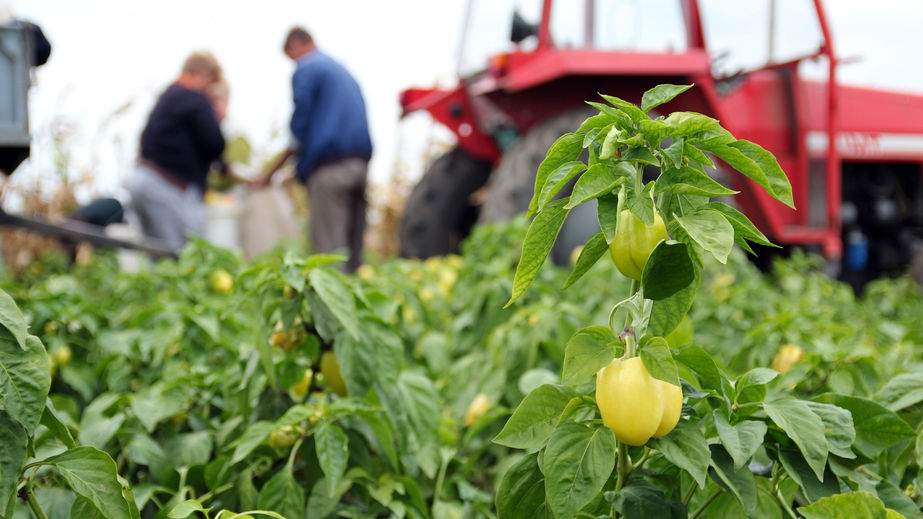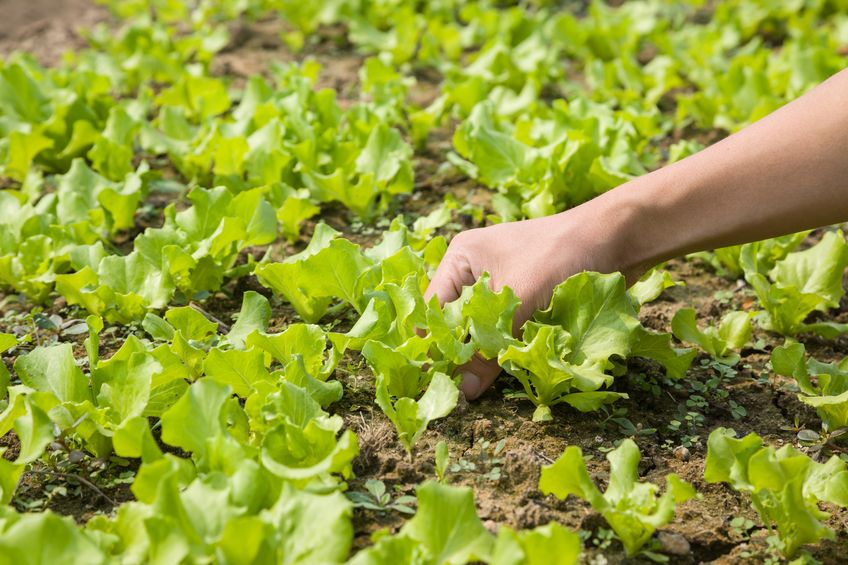
The devaluation of the pound is having a negative impact on the flow of seasonal workers from abroad sparking concerns there will not be enough hands for next year's harvest.
Ali Capper, chairman of the NFU horticulture board said working in the UK was worth less.
She urged the government to set up a permit scheme for seasonal farmhands.
"People in Romania are now looking for €9/hour for seasonal work to make up for the travel and uprooting their lives.
"They do not have to come here to pick apples for what is perceived as less money, they can do that in other EU countries."
Jerzy Kwapniewski who has left Poland for the last 18 years to spend his time working on farms in England told Reuters it 'may change for me and my colleagues.'
'Not welcome'
Two employment agencies that bring Eastern European workers to British farms said they failed to find workers to fill 600 positions.

Miss Capper said the message since the vote to leave the EU is they are 'not welcome to come here.'
"The agricultural industry has a decades-long history of delivering 98 per cent worker return rates.
"Seasonal labour is not tied up in the immigration argument and never should be, because people come here to work and go home again."
During the Conservative Party conference, the farming industry told the government that it would struggle to survive without seasonal flow of labour from the continent.
CLA President Ross Murray said workers from the EU and beyond play a "crucial role" in the rural economy.
"In agriculture alone more than 30,000 permanent workers and an estimated 67,000 seasonal workers overseas help keep our shops and market stalls stocked with UK produce," he said.
"Farms and other rural businesses need to know that after Brexit there will still be a flexible, skilled and secure workforce so they can plan for the future, invest in their businesses and secure or create jobs."
'Biggest concern'
The Royal Association of British Dairy Farmers' (RABDF) 2014 independent farmer survey concluded that migrant workers were making a significant contribution to the dairy sector with one third of producers having employed foreign labour with the majority agreeing they had been a very successful option.
Angus Armstrong, chief executive of Produce Investments, a potato cultivation business said it was one of his biggest concerns.
"We as a sector cannot turn our back on availability of labour," Mr Armstrong told the Telegraph.
"We would expect the Government to go back to a similar type of scheme should free movement of labour be curtailed after Brexit.
"It would be impossible to plug the shortage with local workers. The sector would struggle without labour from abroad."
